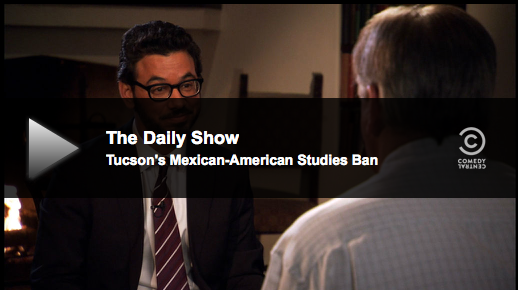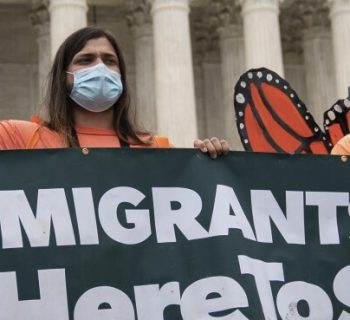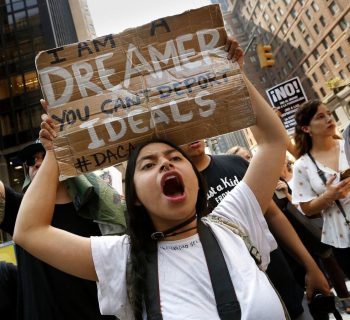By Dalina Castellanos, April 4, 2012, 2:44 p.m.
After that stint on Comedy Central’s “The Daily Show,” the Tucson Unified school board is probably wishing it had hired a media consultant before trying to explain its position on the district’s controversial Mexican American Studies program. http://www.thedailyshow.com/watch/mon-april-2-2012/tucson-s-mexican-american-studies-ban
Normally, when people are featured on a television show, they call family and friends and let them know the time and channel. That might not be the case for board member Michael Hicks, who appeared in a segment about the ethnic studies controversy.
The Tucson school board voted to end the program after Arizona's education chief had ruled the district in violation of a controversial state law banning classes designed for a particular ethnic group or that "promote the overthrow of the U.S. government."
Defenders of the Mexican American Studies program have said it does no such thing. Some board members said they voted to discontinue the program under duress because the legislation allowed the state to withhold funding from the district unless it complied with the law.
The law and the board's vote -- and protests by Latino students -- have prompted fiery discussions in Tucson and across the state. Into that atmosphere stepped Hicks when he explained his vote on "The Daily Show."
"My concern was a lot of the radical ideas that they were teaching in these classes," Hicks is quoted as saying.
"Telling these kids that this is their land, the whites took it over and the only way to get out from beneath the gringo — which is the white man — is by bloodshed."
The segment quotes him as saying he has never gone to any of the classrooms and based his opinions on "hearsay." He apparently digs himself in deeper when he discussed why African American studies and Asian Pacific American studies won’t be affected by the ban.
The African American Studies program is "not teaching the resentment of a race or class of people," he said.
Though, when Hicks was asked to envision Madrigal as a black student -- how would Hicks teach him about slavery without creating resentment toward white people? "Slavery was a ... slavery was a ..." Hicks stammers.
"The white man did bring over the Africans... " he trailed off, allowing Madrigal to deliver another jab: "What kind of jobs did we do?"
"The jobs you guys did were slavery jobs,” Hicks answered uncomfortably.
“You know, Rosa Clark did not take a gun and go onto a bus and hold up everybody,” Hicks later added, referring to civil rights activist Rosa Parks.
Even before Hicks' comments, the controversy swirling around the program showed no signs of abating. Two students have sued to challenge the law and the case is making its way through federal court. Hicks didn’t respond to phone calls, but released a statement saying he was unaware the show was satirical in manner. "They slice and dice footage to serve their need to entertain," he wrote. "I can assure you that my statements were taken out of context."
"Real children were being exploited, and the producers of 'The Daily Show' chose to ignore that."
In Tucson, this is just another blow to the bruise left by the law’s controversy. "Hicks has, unfortunately, demonstrated his lack of knowledge about the MAS program, about the basics of American history and, most of all, his lack of judgment," the Arizona Daily Star wrote in an editorial Wednesday.
The school district released a statement saying Hicks, as a public official, "was speaking as an individual. His comments do not represent the TUSD governing board or the school district."
----------------------------------------------------------------------------------------------------
Ethnic studies face possible reforms
Ethnic studies programs at Cal State Long Beach are in jeopardy of undergoing structural changes if voters do not approve Gov. Jerry Brown’s tax initiative this November.
In President F. King Alexander’s letter to the campus community in February, he said that CSULB could potentially face a $26 million deficit in the 2012-13 academic year.
“Instruction is being largely protected for fall [2012] but if the initiative does not get passed there will be massive class cuts in spring, perhaps 1,800 sections,” said David Dowell, vice provost for planning and budget, and director of strategic planning.
A consolidation of the Africana studies, the American Indian studies, the Asian and Asian American studies and the Chicano studies into one ethnic studies department has been mentioned, according to Dowell.
Dowell said there currently is no good solution, but changes have to be made. The possibility of restructuring certain departments on campus and consolidating them into one school is a possibility.
“While [an ethnic studies department] periodically gets suggested by various folks, I’m aware of no plan for this at the level of the provost’s office,” Dowell said via email.
Troy Johnson, the director of American Indian Studies, said consolidation is being discussed. Maulana Karenga, department chair of the Africana studies department, also said he’s “aware that conversations are occurring.”
Teri Yamada, professor and vice chair of the Asian and Asian American studies department, said she opposes the idea, but ultimately the administration would make the decision.
Johnson said that right now the four departments are in cooperation with each other but consolidating into one department would end the autonomy of each department and potentially create a competition between all four divisions over budget allocations.
Karenga said there should be a shared sacrifice between all departments on campus and not an inequitable shift towards the minority departments that have lower enrollment.
“It’s retrogressive to collapse all the colored people together,” Karenga said.
He said the identity of each department is at stake.
Karenga, Johnson and Yamada all mentioned a shift that has occurred in education and how it relates to the lower enrollment in their departments.
Yamada said education is becoming a commodity, something that sells and revolves around money instead of intellect.
Karenga said students should still remember the importance of getting a liberal education versus a career education.
Karenga said students should seek “an expansive conception of the human life.”
Johnson said there’s an increased focus in obtaining a career that hinders the opportunity college provides to explore different fields.
“Getting kids through college is becoming a business,” Johnson said.







